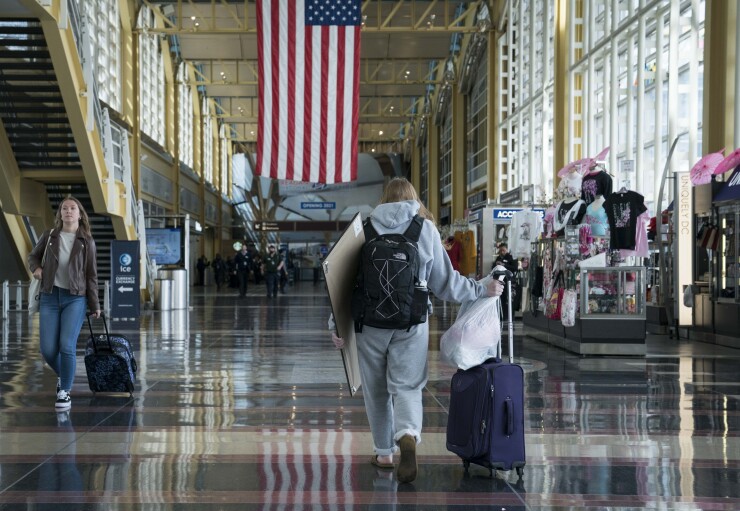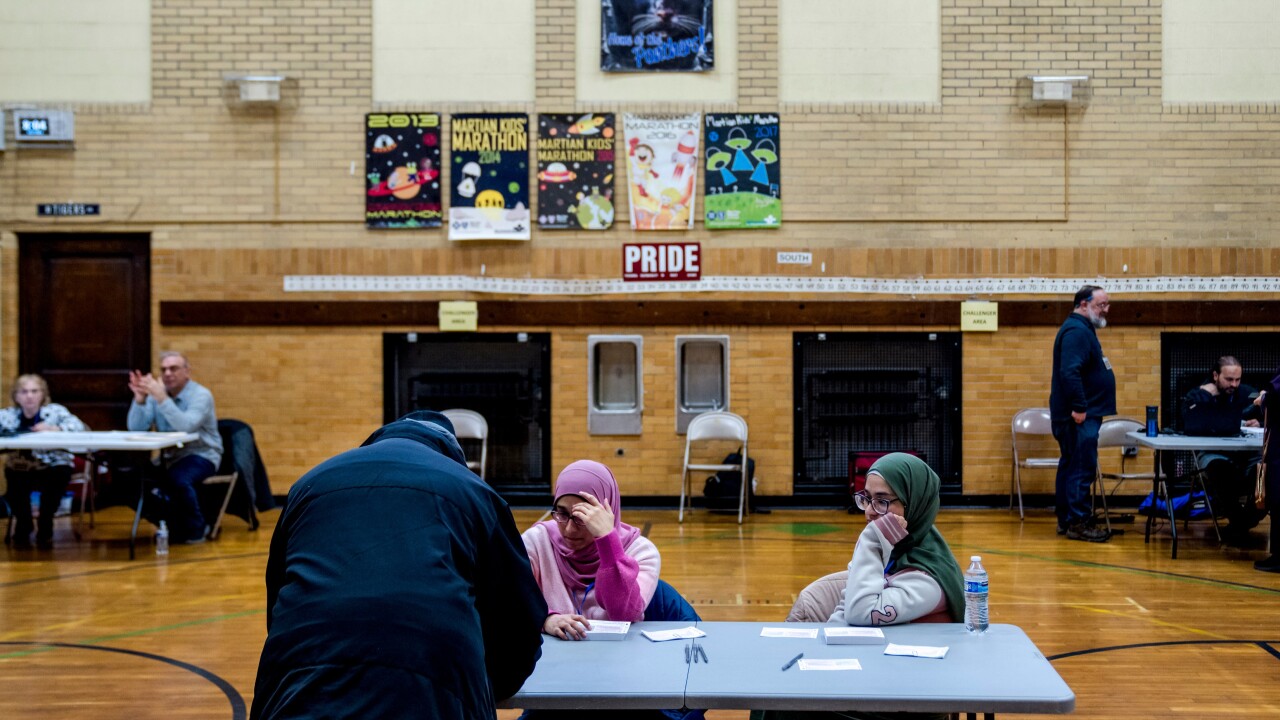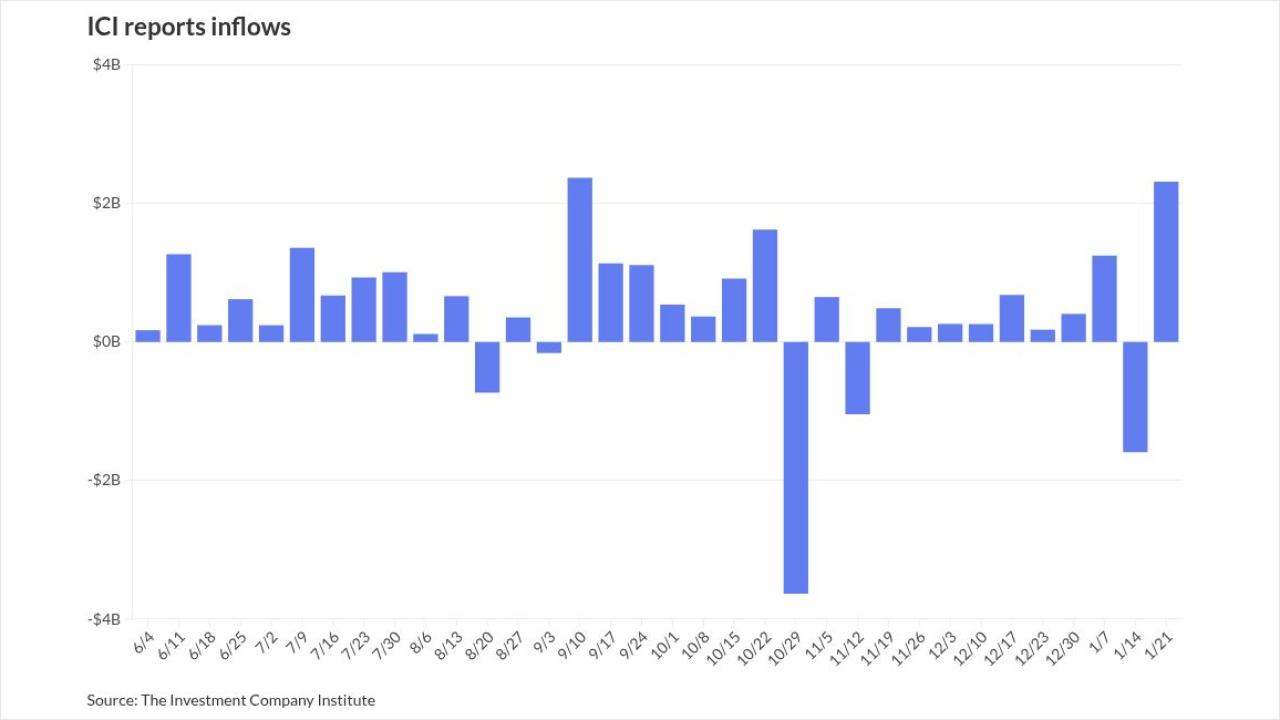Airports are asking Congress for $10 billion as part of a larger bailout package lawmakers are developing for a third bill to address the COVID-19 pandemic.

Expected airport losses this year jumped to $8.7 billion on Monday from an earlier estimate of $3.7 billion released last week, according to Airports Council International – North America.
In a letter to key congressional leaders dated Wednesday, ACI and the American Association of Airport Executives requested the $10 billion be distributed through the existing FAA Airport Improvement Program with expanded eligibility to meet airports’ most immediate needs.
Airports have nearly $100 billion in infrastructure debt that requires about $7 billion in airport bond principal and interest payments this year.
“No U.S. commercial service airport has ever defaulted on a bond payment,” the letter said. “Allowing a default now would be devastating for any affected airport and the entire industry, as future borrowing costs would increase significantly.”
In the last several days two rating agencies have removed their positive outlook for the sector, with S&P Global changing it to negative and Moody’s Investors Service last week revising its outlook to stable.
ACI expects total airport operating revenue to decrease 68% through June 30, a drop of about $6.1 billion caused by decreases in the number of passengers and a combination of cancellations and reductions of domestic and international flights.
Overall 2020 operating losses at airports are expected to top $7.6 billion taking into account announced summer service reductions.
On a positive note, Moody’s said that airports “enter this turbulent period with strong financial metrics following years of robust growth, supporting the ability to weather short-term disruptions to operations and still maintain long-term credit quality.”
Enplanements grew about 3.8% in 2019.
Moody’s said that “ample liquidity will remain in the event that operational disruptions exceed our expected scenarios,” but added that its outlook could turn to negative if expected airline traffic drops further.
“The situation is developing quickly so our thinking is fluid,” Kurt Krummenacker, a senior vice president and manager at Moody’s, said Wednesday. “Certainly the situation continues to change given the increased number of government restrictions on travel as well as the announcements by airlines of severe cutbacks in their capacity over the next few months.”
“I don’t think we really know what the bottom is yet,” said Kurt Forsgren, a managing director and sector lead for transportation at S&P Global. “We’ve seen some preliminary numbers from airports that suggest it’s down 30% and we expect that to grow in the next reporting cycle.”
The question is how long the decline will persist and where the bottom will be, he said.
“We haven’t taken any specific credit rating actions yet,” Forsgren said. “We’re looking at our portfolio and trying to drill down a bit to see if there are any more credits that are more exposed than others.”
Airports have a lot of fixed costs and this marks the most severe disruption in transportation history.
S&P Global Ratings said it foresees ratings pressure on airports even though their finances are significantly more resilient than airlines.
S&P expects an extreme drop in passenger numbers of “at least 20% in 2020 (from 2019) but potentially averaging 70% over a three-month peak period and recovering less steeply than seen in past events, given the difficulty of containing this virus.”
“While airports have diverse revenue streams, the plunge in passengers will undoubtedly affect non-aeronautical commercial revenue or may lead to some negotiated support of retailers from the airport operators,” S&P said.
While many airports' contracts with their tenants have minimum revenue guarantees that normally would provide some protections, in the current situation, airports are likely to take into consideration the difficulties endured by their customers affected by the outbreak and adapt the payment conditions applicable to them, and to cooperate with airlines and retail partners by relieving them of some of their contractual obligations to help them survive
In a broader statement covering a variety of transportation infrastructure sectors, S&P said “the spread of COVID-19 cases across the globe has caused a dramatic reduction in air traffic, port container volumes, cruise ship sailings, public transit ridership, and overall mobility.”
“Risks remain that travel restrictions and consumer behavior changes due to additional U.S. outbreaks will severely reduce activity levels,” S&P said. “The cascading effects of this pandemic are making it difficult for issuers to forecast its impact. Longer term, changes in supply chains, economic softening, and recessionary pressures would affect our view of ratings.”
The Trump administration reportedly will ask Congress to provide $50 billion in assistance to the airline industry, although the details and amount of the assistance will be subject to negotiations.
The joint letter from Kevin Burke, president and CEO of ACI, and Todd Hauptli, president and CEO of AAAE, said they “ strongly support efforts to provide airlines with immediate assistance.”
Some congressional Democrats have expressed reluctance to support an industry bailout for airlines similar to what was given to banks during the 2008-2009 financial crisis, but airports could receive more sympathetic treatment because they are publicly owned.
Several Democrats have said they want provisions preventing stock buybacks and the administration is reportedly considering limits on increasing executive salaries until after any federal loans are repaid.
Republican Sen. Rick Scott of Florida also expressed his opposition to a bailout of big business in a Wednesday op-ed for Fox Business.
“Let me be clear,” Scott wrote. “We should not bail out large corporations that have enjoyed years of growth and prosperity. I won’t support it. The people that need help the most are small businesses, hourly workers, people who rely on tips, and gig economy workers like Uber and Lyft drivers.”





